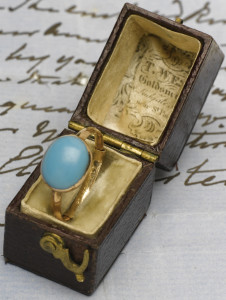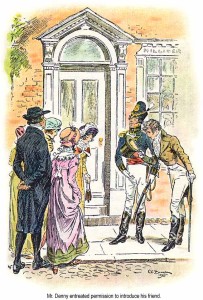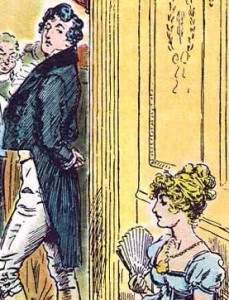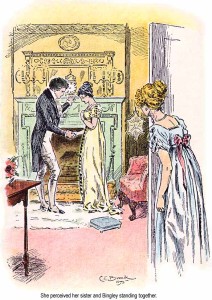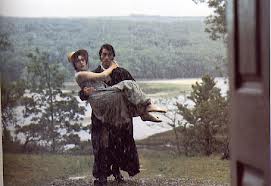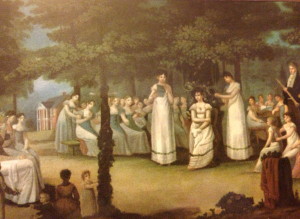 I think it’s pretty much standard that when you write romance you fall in love with the hero, even if at certain stages of the book you want to give him a smack upside the head and tell him not to be such a stubborn, insensitive, clueless idiot. And we hope that our readers fall in love with him and the heroine, or even the relationship itself. Lizzie and Darcy, anyone?
I think it’s pretty much standard that when you write romance you fall in love with the hero, even if at certain stages of the book you want to give him a smack upside the head and tell him not to be such a stubborn, insensitive, clueless idiot. And we hope that our readers fall in love with him and the heroine, or even the relationship itself. Lizzie and Darcy, anyone?
So here’s my Top Ten, in no particular order, of fictional heroes I have fallen in love with:
Black Beauty. Yes, I know he’s a horse. I was six, okay?
 Mr. Tumnus in The Lion, the Witch & the Wardrobe. Ditto faun, and I was eight. But I fell all over in love with him again in the movie and James McAvoy’s goaty goodness. Talking of which, check out this very sexy dance scene from the very indifferent movie Becoming Jane. Ooh.
Mr. Tumnus in The Lion, the Witch & the Wardrobe. Ditto faun, and I was eight. But I fell all over in love with him again in the movie and James McAvoy’s goaty goodness. Talking of which, check out this very sexy dance scene from the very indifferent movie Becoming Jane. Ooh.
Henry Tilney. He is the best Austen hero. He knows about laundry. He has social skills, does not practice pluralism, and is the success story of his dysfunctional family.
Lord Peter Wimsey. Or, to be specific, Lord Peter Wimsey in Gaudy Night, when Harriet falls in love with him, finally, and he is translated into instant hotness. Placetne, magistra?
Sam Vine in Terry Pratchett’s Discworld series. A cop with smarts, a tender heart, a strong sense of justice, and a love of bacon sandwiches.
Lord Vetinari, also from Discworld. What’s not to love! An autocrat who was trained as an assassin, given to sarcasm and steepling of fingers.
Dorothea Brooke from Middlemarch by George Eliot. So she’s a girl (so was George). You have a problem with that?
Will Ladislaw, also from Middlemarch. All that exotic foreign radical hotness.
Jasper Hedges from Pam Rosenthal’s The Edge of Impropriety. Smart, shabby, beautiful hands, glasses, and actually smacks away the heroine’s hand during their first encounter because he can undo his trouser buttons faster than she can.
Temeraire the dragon from Naomi Novik’s series. Even if he does have eggs with other women I love him still.
And #11, bonus material, Will Lawrence from the same series.
How about you?

